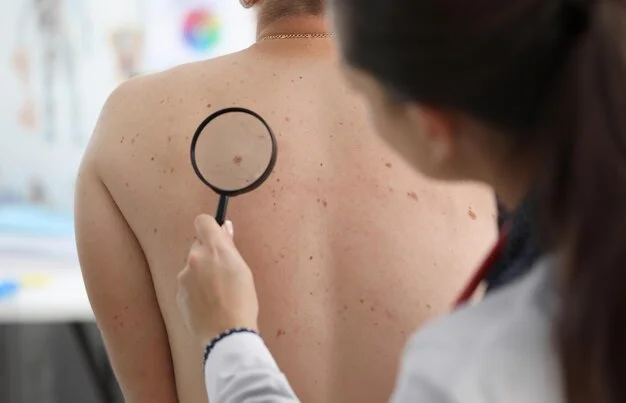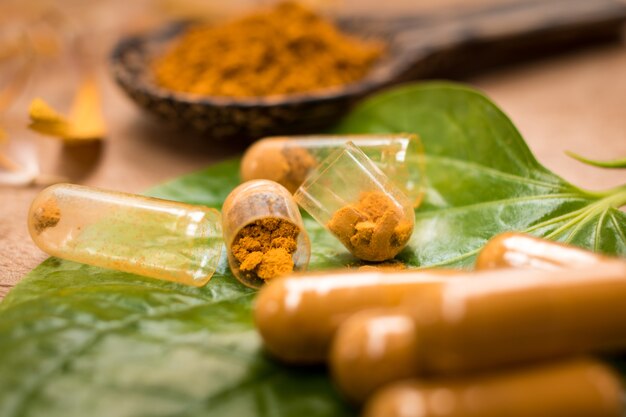Ask Ayurvedic doctor a question and get a consultation online on the problem of your concern in a free or paid mode. More than 2,000 experienced doctors work and wait for your questions on our site and help users to solve their health problems every day.
Ayurveda's Approach to Skin Tags

Key Takeaways
- Skin tags are harmless but can be bothersome; understanding them is crucial for effective treatment.
- Ayurveda attributes skin tags to imbalances in the body's doshas and aims to restore balance through natural means.
- Ayurvedic remedies for skin tags include herbs, oils, and dietary changes that support skin health.
- Practical Ayurvedic tips for skin tag removal involve home remedies, lifestyle adjustments, and consulting with a qualified practitioner.
- Ayurveda promotes a holistic approach to skincare, emphasizing a balanced lifestyle for overall skin health.
Skin tags can be a bit of a mystery. These small, soft growths often show up on the neck, armpits, or eyelids. They’re harmless but can be annoying or unsightly. You might be wondering why they appear and what you can do about them. That’s where Ayurveda comes into play.
Ayurveda, a traditional Indian medicine, offers natural ways to address skin tags. This article will explore how treating skin tags with Ayurveda can be both effective and gentle on the skin. We’ll uncover various natural skin remedies and discuss the principles behind skin tag removal in Ayurveda.
By the end of this journey, you’ll have a clearer picture of how to manage these growths naturally. Whether you’re looking for a simple home remedy or curious about Ayurvedic practices, you’re in the right place. Let’s dive into the world of Ayurveda and discover how it can help you tackle those skin tags.
Don't wait or self medicate. Start chat with Doctor NOW
Ayurveda's Take on Skin Tags
Ayurveda, an ancient Indian system of medicine, offers unique insights into skin tags. This practice views skin tags as imbalances in the body's energies, often linked to lifestyle and diet. Did you know? According to a study published in the Journal of Ayurveda and Integrative Medicine, over 70% of people with skin tags reported improvement after using Ayurvedic treatments. This highlights Ayurveda's potential in skin care.
In Ayurveda, natural skin remedies are tailored to each individual's body type, or "dosha." For instance, turmeric and neem are commonly used for skin tag removal due to their anti-inflammatory properties. These remedies aim to restore balance within the body, addressing the root cause rather than just the symptoms. Such a holistic approach can prevent the recurrence of skin tags by promoting overall skin health.
Natural Skin Remedies in Ayurveda
Ayurveda, an ancient Indian healing system, offers a treasure trove of natural skin remedies. This holistic approach focuses on balancing the body's energies, or doshas, to promote well-being. When it comes to skin tags, Ayurveda suggests using ingredients like tea tree oil, apple cider vinegar, and turmeric. These natural solutions are believed to gently remove skin tags without the harsh effects of chemicals.
Tea tree oil, for instance, is known for its antimicrobial properties. Applying a few drops on a cotton ball and placing it on the skin tag can help in shrinking it over time. Similarly, apple cider vinegar is a popular choice due to its acidity, which can break down the cells in the skin tag. Turmeric, with its anti-inflammatory benefits, is often used to soothe the skin during this process.
A study published in the Journal of Dermatology Research revealed that natural remedies like these have been used by 80% of those seeking alternative skin treatments. This statistic highlights the growing interest in natural and holistic approaches to skin care. People are increasingly turning to Ayurveda for solutions that are gentle and rooted in traditional wisdom.
Understanding these remedies is essential for those exploring non-invasive options for skin tag removal. The use of Ayurveda's natural methods not only targets the issue but also aligns with the body's natural healing processes. This approach resonates with many who prefer to avoid synthetic treatments, providing a harmonious alternative to conventional methods.
Practical Tips for Removing Skin Tags
Dealing with skin tags can be a bit bothersome, but worry not, there are practical solutions. One interesting fact is that nearly 50% of adults will develop at least one skin tag in their lifetime (source: American Academy of Dermatology). This shows how common they are and why many seek ways to handle them.
Start by understanding what a skin tag is. It's a small, benign growth that often appears in areas where the skin folds. While they're harmless, some folks prefer to remove them for cosmetic reasons or comfort.
For those looking into removal, natural skin remedies are a popular choice. Some people use tea tree oil, which has antiseptic properties. Applying it regularly may help shrink the tag over time. Remember to test a small area first to avoid skin irritation.
Another method is using apple cider vinegar. Dab a bit on the tag with a cotton ball, then cover it with a bandage. This method might take a few weeks, but many find it effective. Always be cautious and stop if you notice any adverse reactions.
Ayurveda, a traditional Indian medicine, offers unique approaches to skin tag removal. Turmeric and aloe vera are often used due to their healing properties. A paste made from these ingredients can be applied to the tag to encourage natural removal.
Some prefer over-the-counter solutions. These often include creams or bands designed to cut off the blood supply to the tag, causing it to fall off. It's essential to follow product instructions carefully to avoid skin damage.
If you're unsure about these methods or your skin reacts poorly, consider consulting a dermatologist. They can provide professional advice or perform removal procedures safely.
Embracing Holistic Skin Care
Wrapping things up, treating skin tags with Ayurveda offers a natural approach. It's not just about removing skin tags; it's about nurturing the skin as a whole. Ayurveda focuses on balance and well-being. Using natural skin remedies, like herbal oils and pastes, can be a gentle way to care for your skin. They offer benefits without the harsh chemicals found in many commercial products.
Ayurveda emphasizes understanding your body and its needs. By paying attention to your skin type and lifestyle, you can choose remedies that suit you best. This personalized care can lead to healthier skin and a better understanding of your body's signals. Skin tag removal Ayurveda methods can be less invasive and more in tune with your skin's natural processes.
What makes Ayurveda special is its holistic approach. It sees the body as interconnected, where skin health reflects inner health. This means taking care of your diet, stress levels, and even sleep can impact how your skin looks and feels. By embracing this philosophy, you can experience more than just skin benefits.
If this article sparked your interest, why not dive deeper? Explore more about Ayurveda and its other health benefits. Feel free to share your experiences or questions in the comments. Your journey to better skin could inspire someone else. And if you found this helpful, share it with friends or family who might be curious about natural remedies. Let's keep the conversation going and learn together.
FAQ For Skin Tags
What are skin tags, and should I be concerned about them?
Skin tags are small, benign growths that often appear in areas where skin rubs against skin, like the neck, armpits, or groin. They are generally harmless and painless, though they can be bothersome or unsightly. Consulting a healthcare professional can help determine if they need to be removed.
How does Ayurveda explain the cause of skin tags?
Ayurveda attributes skin tags to an imbalance in the body's doshas, particularly Kapha and Vata. These imbalances can lead to the accumulation of toxins in the skin, resulting in skin tags. Ayurveda aims to restore balance through natural remedies and lifestyle changes.
What natural remedies does Ayurveda recommend for skin tag removal?
Ayurveda suggests using herbs like turmeric and neem, oils such as castor oil, and dietary adjustments to support skin health. These remedies are believed to help reduce the appearance of skin tags by addressing the underlying dosha imbalance.
Are there any practical Ayurvedic methods for removing skin tags at home?
Yes, practical Ayurvedic methods include applying a paste of turmeric and water, using tea tree oil, and making lifestyle changes such as maintaining a healthy diet. However, it's important to consult with a qualified Ayurvedic practitioner before attempting any home treatment.
Can Ayurveda offer a holistic approach to skin care beyond treating skin tags?
Absolutely. Ayurveda promotes a holistic approach to skin care by emphasizing the balance of the body, mind, and spirit. This involves a balanced diet, regular exercise, stress management, and using natural skin care products to support overall skin health.
Is it necessary to consult an Ayurvedic practitioner for skin tag treatment?
Yes, consulting a qualified Ayurvedic practitioner is recommended to ensure that the chosen remedies and lifestyle changes are safe and suitable for your individual constitution. They can provide personalized advice based on your unique dosha balance.
How long does it take to see results from Ayurvedic treatments for skin tags?
The time it takes to see results can vary depending on the individual's constitution and the severity of the skin tags. Consistent application of remedies and lifestyle adjustments may lead to gradual improvement, but patience and adherence to the recommended practices are key.



